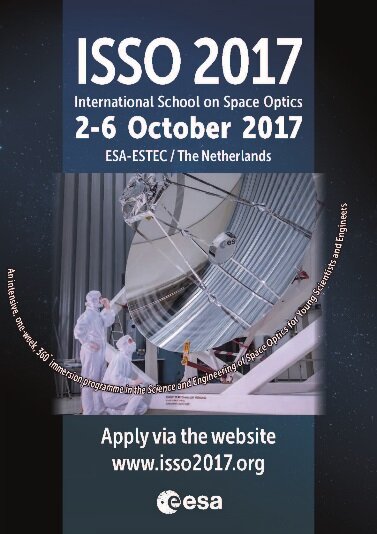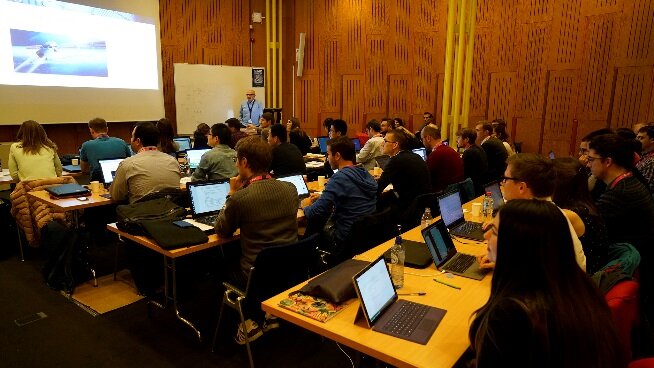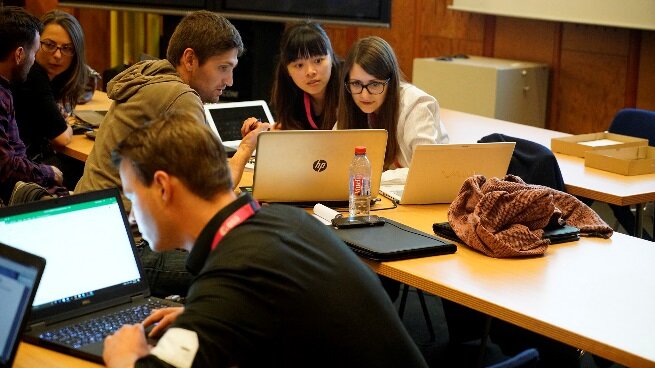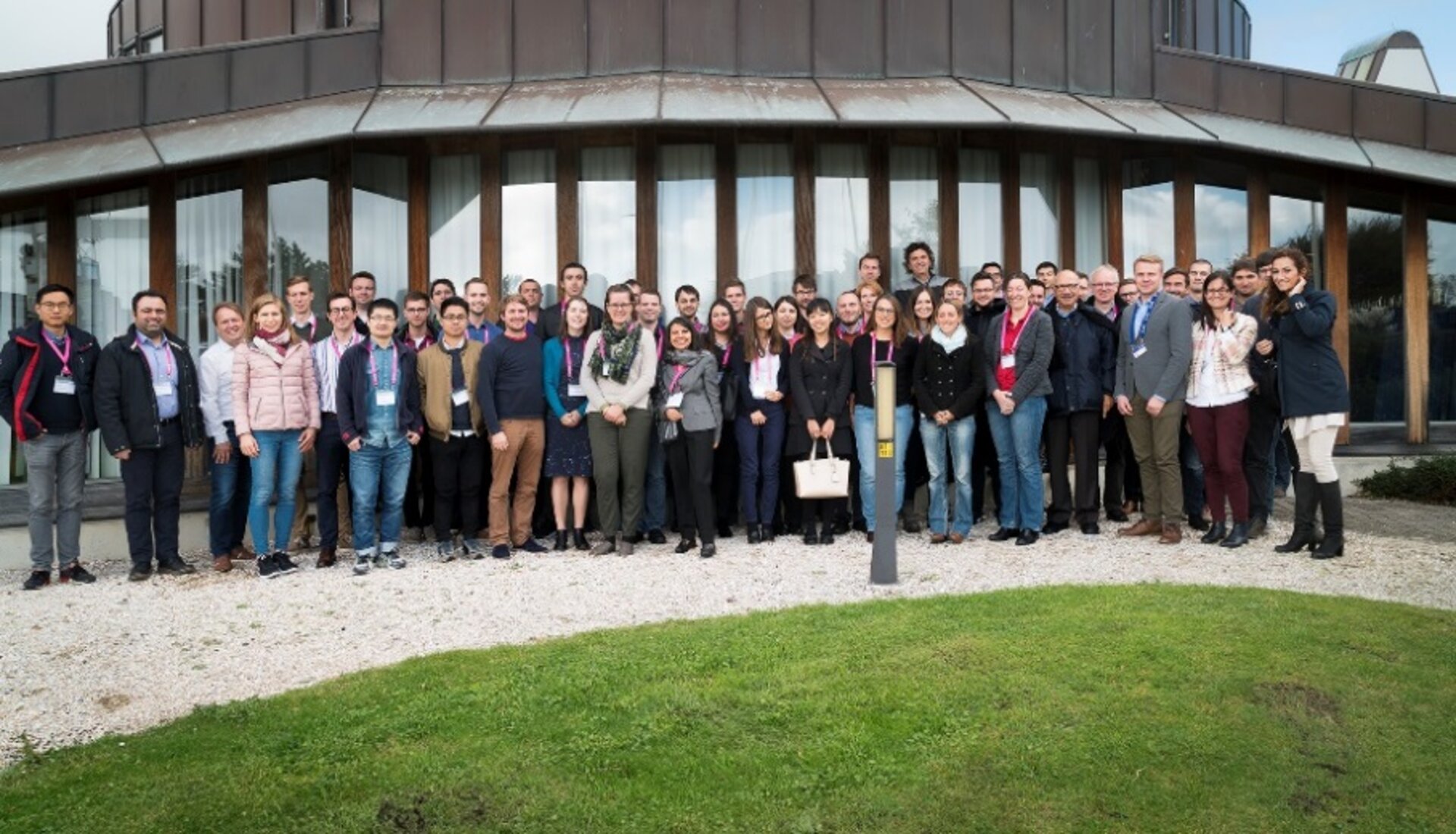Summary of ISSO-2017
The International School on Space Optics www.isso2017.org took place during 2-6 October at ESTEC. This event follows the Winter School on Space Optics organised with the opportunity of the UN International Year of Light in February 2015 in Trieste, http://indico.ictp.it/event/a14287 which was supported by the Agency in the form of sending Lecturers.
Objective

The objective of setting a 'regular ISSO', is to offer young optical scientists and engineers the possibility of a 360 degrees 'immersion' course on all aspects of Optical Engineering in Space.
Motivation and vision
A course on Space Optical Engineering does not exist in any University curriculum and no other forum provides a global coverage of all disciplines in this field. ISSO is conceived as an intense 1-week event composed of Lectures, Design Project and Visits to related facilities. It is also conceived as a 'sister event' to the biannual International Conference on Space Optics (see www.icso2018.org). ICSO runs on even-numbered years and ISSO is planned to run on odd-numbered years. ISSO was coordinated by 5 Directors (1 ESA, 2 ESA pensioners, 1 CNES and 1 from the Italian Research entity-ENEA). Two of the chairs of ICSO are also directors of ISSO. It targets young scientists and engineers with a background in any discipline of Optics and the objective was to introduce them to all aspects of Optical Engineering in Space.
Participation and organisation

In total 50 students from several countries across Europe plus Singapore and Mexico. 2/3 of them were selected by the open application process and 1/3 were nominated by our industrial sponsors. In total:
- 17 lecturers offered their services stemming from ESA (7), ESA Pensioners (2), CNES (3), Italian Universities/Research Centers (4) and a Belgian Research Center (1). 4 ESA trainees also helped on practical aspects of the organisation.
- A 'Design project' was organised by Errico Armandillo (the ex HoS of Optoelectronics) on numerical design of a LIDAR system.
- At the end of each day Laboratory visits were organised to the Test Centre, ERASMUS, CDF and Optics/Optoelectronics Lab.
The participation of the 50 students was an outstanding 100% to all the activities!
Feedback from students

All students were required to provide a feedback form with evaluation for each lecture and comments for improving the School. In a scale 1-5 the 'School Overall Evaluation' scored 4.1 (Very Good-Excellent) which is what the School Director would have also awarded. The overall perception was very positive with impressions on the Lectures quality varying between 3.53 – 4.60. Several comments have been recorded and an assessment meeting of the School Directors took place to see how these will be incorporated for the next organisation in 2019.
Financial aspects
The cost of the School was kept to a minimum and industrial sponsorship was sought. There were 8 industrial sponsors, all companies related to Space Photonics that contributed a total of 18.8 Keuro. Students were charged only 150 euros as a sign of commitment that they will indeed come to the School once they register. As a result, it was possible to offer food vouchers to all students and at the end there was 5 Keuros left due to the fact that less expenditure that budgeted for, was claimed by the guest lecturers. Overall, it was a very easy and safe way to organise such an event with minimum effort and zero financial risk.
Next plans
ISSO 2019 is currently planned to be organised by CNES in Toulouse in October 2019. The decision is to be taken in March and a backup location in Rome has been identified in case Toulouse is not possible. The selection of future location has 2 main conditions:
- Local presence of Space Industry so industrial visits can be organised
- Local presence of competent people that can commit to the successful organisation of the School
Overall conclusion
ISSO has been initiated as a new event of special added value targeting the new generation of optical scientists and engineers. ISSO-2017 was organised with minimum investment in an effort and with zero financial commitment from the Agency. From now on ISSO will be organised on a regular biannual basis as a 'sister event' to ICSO.




